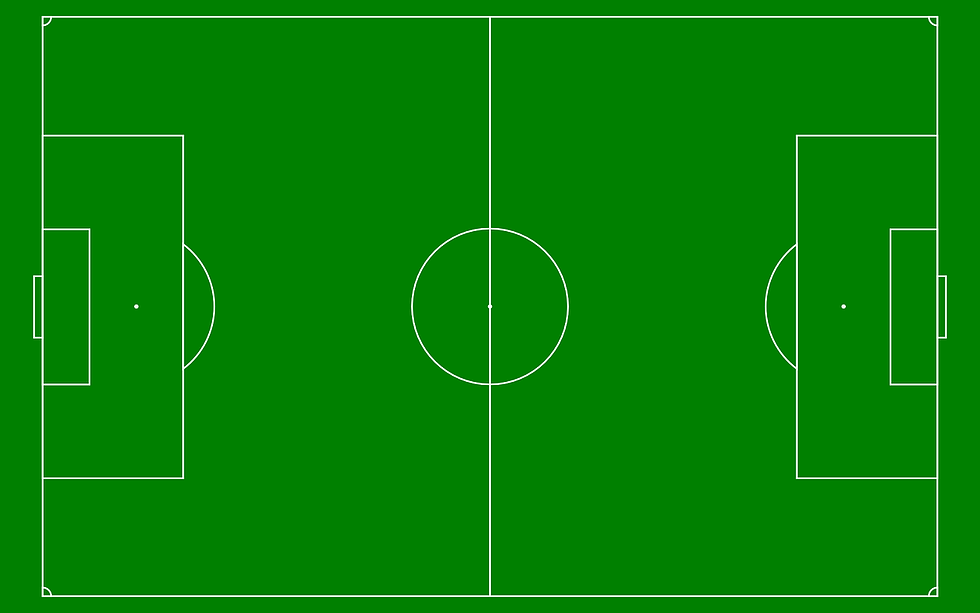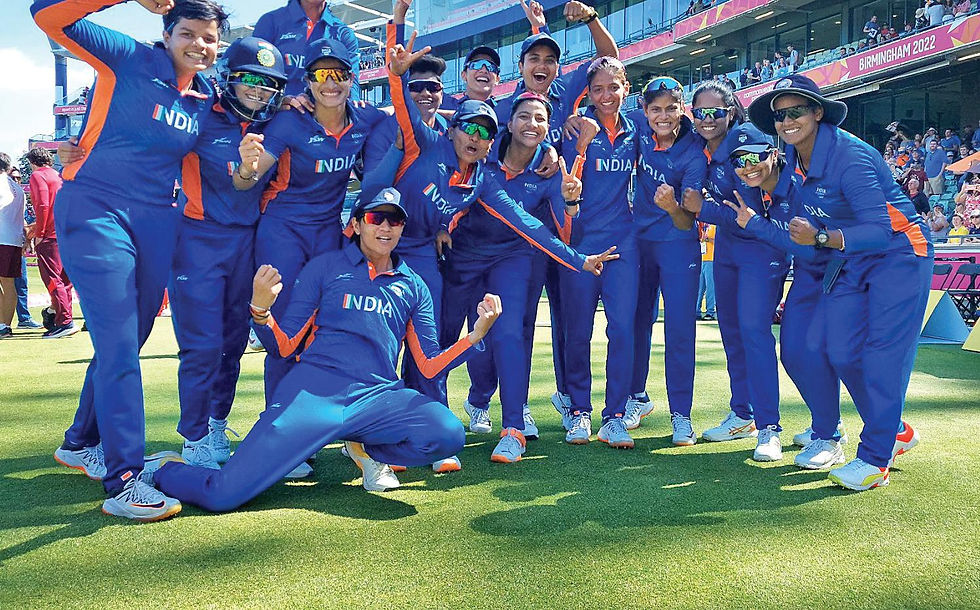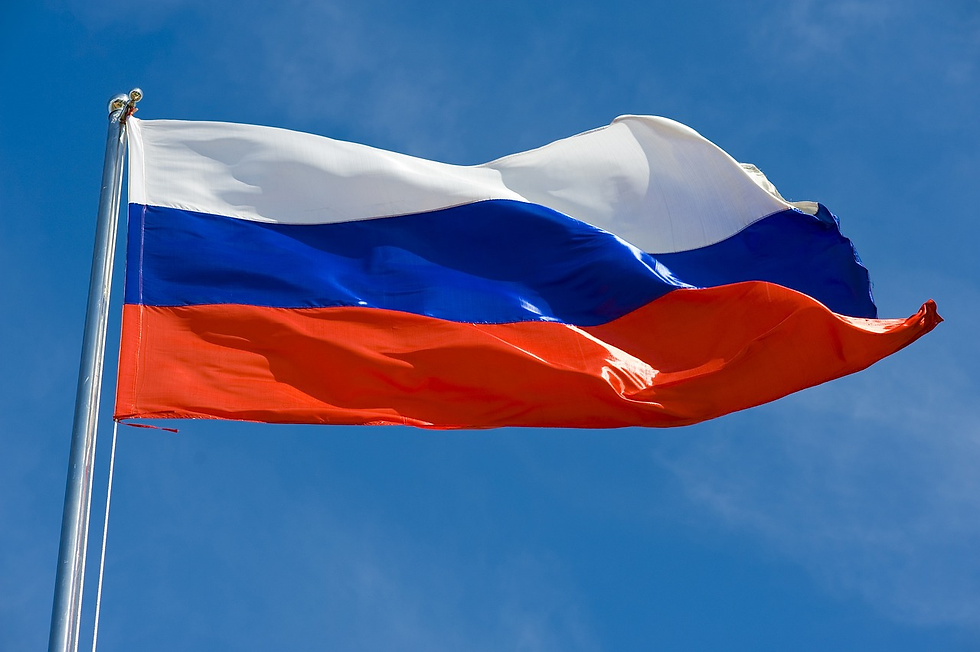The Premier League Returns
- Toby Howe
- Jun 22, 2020
- 4 min read
Updated: Dec 22, 2024
Toby Howe discusses the return of the English Premier League, after it was put on hold amidst the COVID-19 pandemic. Not everyone has endorsed the FA's decision, as some players fear the decision could increase the spread of disease. As is often the case with football, controversy has quickly arisen over the use (or lack of) of VAR. In an act of solidarity with the Black Lives Matter movement, teams have been taking the knee before the start of matches, and have sported the famous motto on their shirts, instead of their own names.
Having been suspended on Friday the 13th of March, the Premier League returned to our screens for the first time in 100 days. On Wednesday the 17th of June, Aston Villa hosted Sheffield United in front of an empty Villa Park, as the first of the two fixtures in the day. The second tie was between Manchester City and Arsenal: the former of which played at home, and won by 3 goals to nil.

Before it was announced that the season would return, eyebrows were raised over as to whether or not the correct decision would be to continue the campaign, or to settle with the season as it was. In the latter of those cases, outcomes such as relegations or elected champions decided would have been based upon the league standings. Another rejected option was to restart the whole process again, meaning teams who were sitting in the relegation places would have been saved, and any fans of Liverpool, the club sitting a comfortable 22 points clear of second place, would have been mightily put off football for the forseeable future.
However, the league is back, and the FA seeks to finish what was started. “Project Restart”, as it has been named by English clubs, is underway. In simpler terms, the remaining 92 league games will be crammed into a thrilling 40 days to determine the final standings of the 2019/20 COVID-19 affected season.
Why was it decided that the league would return and finish in the coming 40 days? After careful consideration, the Premier league stated it was safe to begin training again with the correct safety measurements in place. Since then, teams have been testing players and staff twice a week, with some having to isolate for 7 days if their results are positive. The government soon followed and gave the go ahead for competitive football to return on June 1st. As fixtures were arranged and media coverage was organised, teams in the Premier League unanimously voted for contact training to resume; friendlies would be organised between clubs and local football league teams. These produced some worrying moments for some fans who saw their teams suffer defeats at the hands of lower-league oppositions.
While various decisions were being made, football fans and players' opinions differed as to whether it was appropriate to finish the season. Danny Rose (current Newcastle United defender on loan from Spurs) has criticised the league’s proposed return, arguing that being in such close proximity with other players would be risky. He emphasised, "Football shouldn't even be spoken about until the numbers have dropped massively," simply concluding: "People's lives are at risk." Other players such as England international Raheem Sterling have also expressed their worries about returning to action. The Manchester City attacker believes it’s safer for everyone involved to stay home, until the virus has subsided, and everyone's safety is "secured."
Nevertheless, onto day 5 of “Project Restart” and football is back on our screens, meaning a certain level of normality has been restored. Though, as much as it’s great to watch the game for the first time in months, it only took less than 45 minutes for controversy to spark once again. Over the past few years, football has become more innovative with the introduction of goal line technology, which was introduced to settle the odd debate of “Did the ball cross the line?”. The most recent technology introduced is VAR. The term is an abbreviation of ‘Video assistant Referee’; it was brought into the game with a purpose to ensure a fair result in the case of disputes. For example, a tackle from one player to another may be reviewed by VAR to decide what actions should be taken – for example it may determine whether the player is sent off, or let off a a yellow card.
VAR has been the centre of attention for a lot of the current season; it’s helped make correct decisions, but has also caused a massive disagreement amongst fans, with the technology being blamed for slowing the game, cheating teams of points (according to Southampton’s Charlie Austin), and taking the edge away from football. It also hasn’t been completely accurate, causing making fans to fall out with the new addition to the league. The first controversy was caused VAR, whose services were ultimately not called upon. This occurred during the first game back: Aston Villa vs Sheffield United. Sheffield had an effort clearly put over the line, yet it was disallowed, as the goal line technology did not pick it up. There was also no opportunity provided for review by VAR. The game finished a dull 0-0 and gifted a point for Aston Villa, who, if the decision was reviewed, would have lost.
For now, it is difficult to know what the effects of the league's return will look like, but one thing is for sure: the games, in all their controversial glory, will not disappoint.
#premierleague #football #england #englishfootball #sports #sheffieldunited #astonvilla #manchestercity #arsenal #dannyrose #raheemsterling #coronavirus #pandemic #breakingnews #currentaffairs #news #covid19 #debate #controversy #journalism #teenjournalism #pandemic #VAR #goallinetechnology #technology

_edited.png)



Comments